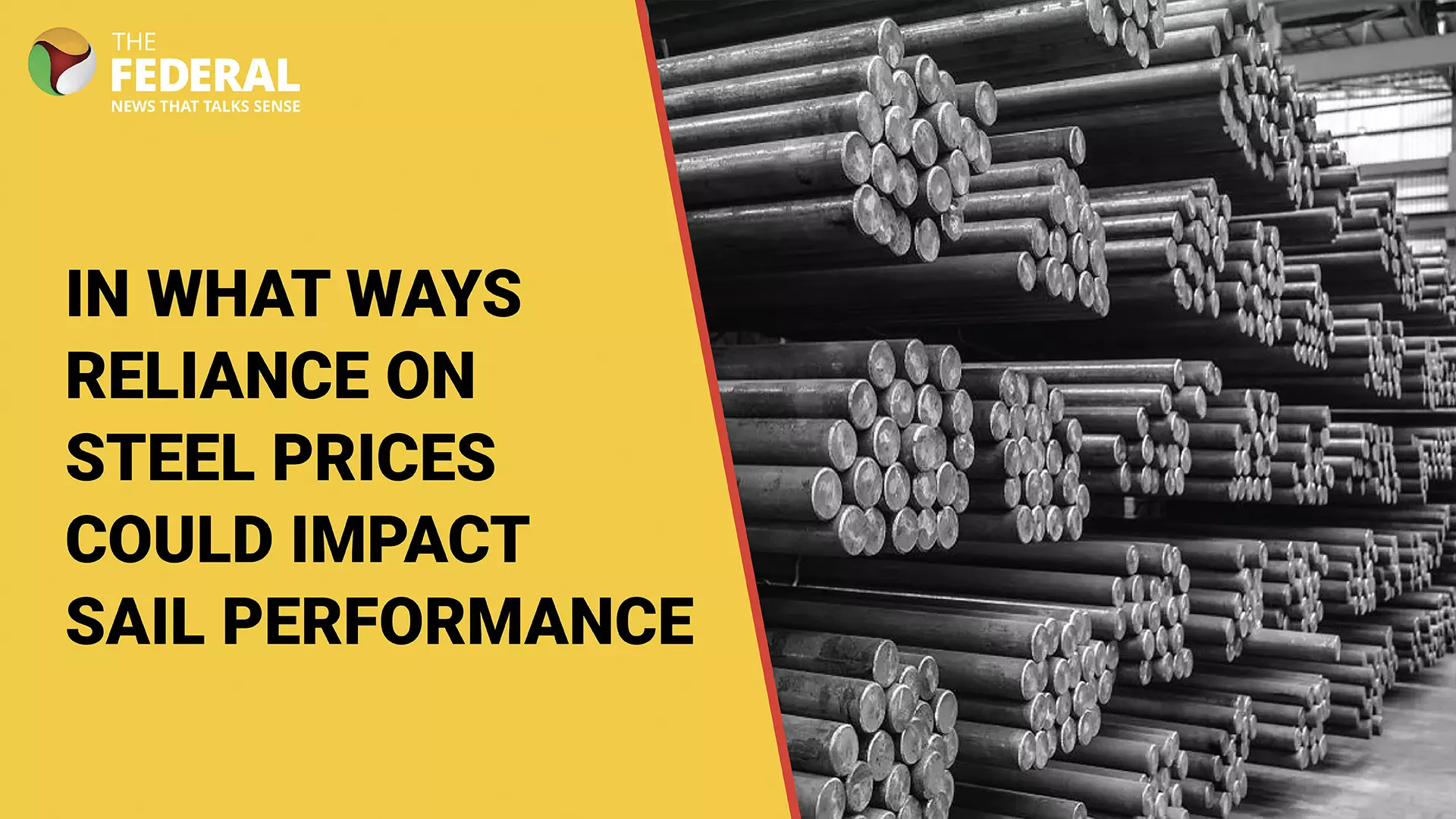
In what ways reliance on steel prices could impact SAIL performance
Although near-term volume growth is projected at 8-10%, rising coking coal costs may impact profit margins, says a Prabhudas Lilladher research report

Steel Authority of India Ltd (SAIL) had a less-than-satisfying performance in the second quarter of FY 2023-25 (Q2 FY24) despite a robust 14 per cent year-over-year growth in production volume. The reported EBITDA was Rs 3,870 crore, surpassing the expected Rs 2,550 crore due to revenue recognition of Rs 1,750 crore from a rail price revision for FY22, said a Prabhudas Lilladher research report. "However, the adjusted EBITDA of Rs 2,120 crore fell short of our projections," said the report.
The EBITDA per ton at Rs 4,416 also fell below the expected Rs 5,757, with the advantage of lower-cost coking coal inventory priced at Rs 23,000 per ton. "Looking ahead to the quarter, we anticipate rising imported coking coal costs will impact EBITDA. SAIL has plans to increase its capacity from 20.2 million tons per annum (mtpa) to 35 million mtpa by FY32; however, potential delays could arise due to the current pace of execution of existing debt on the balance sheet and overall operational inefficiencies," said the report.
The detailed project report for the IISCO plant was initially planned for finalisation by September. It is still being prepared and awaiting approval. In the future, SAIL expects to increase production levels by addressing unit bottlenecks. This includes an estimated output of around 1 million tons from Bhilai and Rourkela in FY26E and FY27E as they enhance their caster capacities. Bhilai is likely to start contributing to these increased volumes from FY25. Considering the performance during the half, we adjusted our EBITDA estimates for FY24 and FY25 downwards by 5 per cent and 2 per cent, respectively.
Looking ahead, SAIL's reliance on steel prices is expected to continue due to factors, said Prabhudas Lilladher. "Firstly, its volume growth depends on executing planned capital expenditure phases with significant capacity expansion anticipated after FY28E. Secondly, although near-term volume growth is projected at 8 per cent-10 per cent, rising coking coal costs may impact profit margins. Lastly, SAIL is expected to maintain its advantage over competitors due to iron ore prices," it said.

